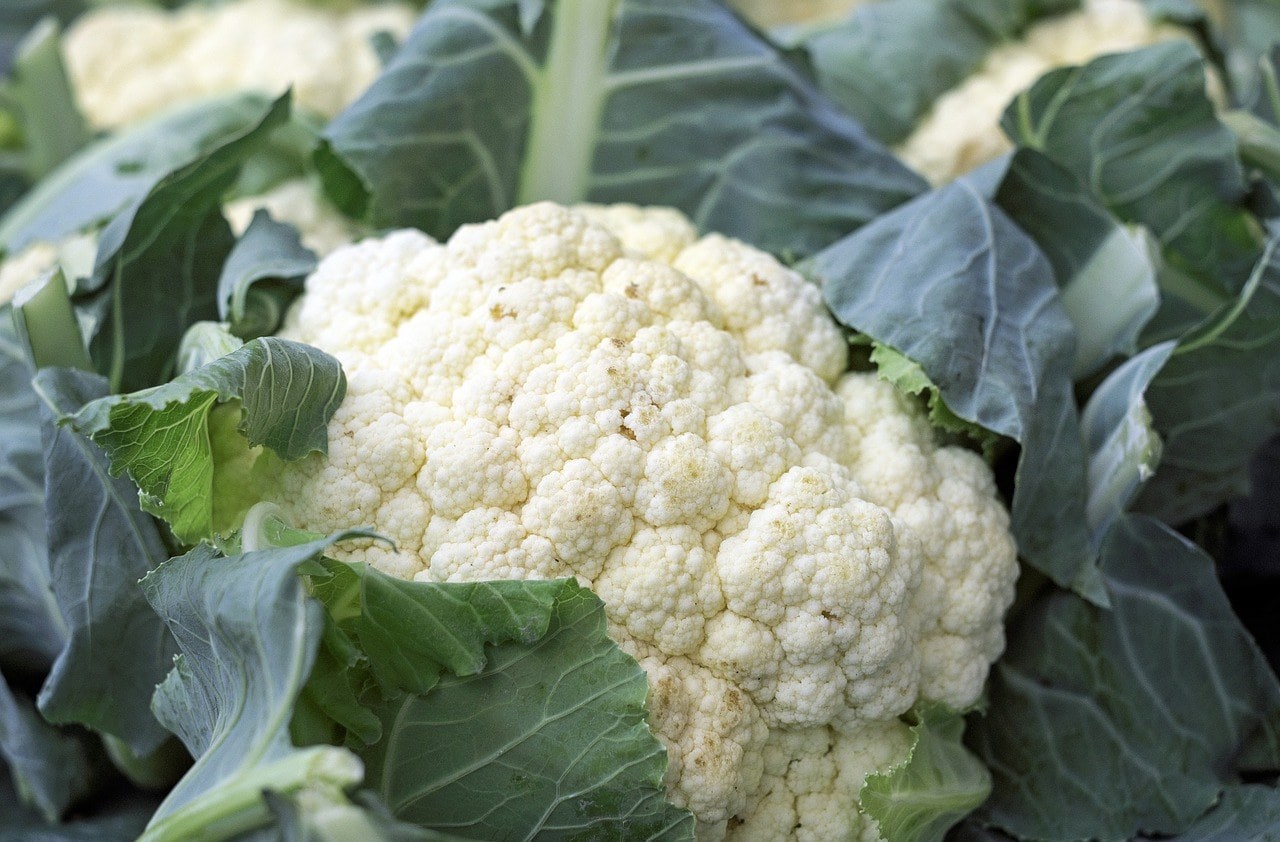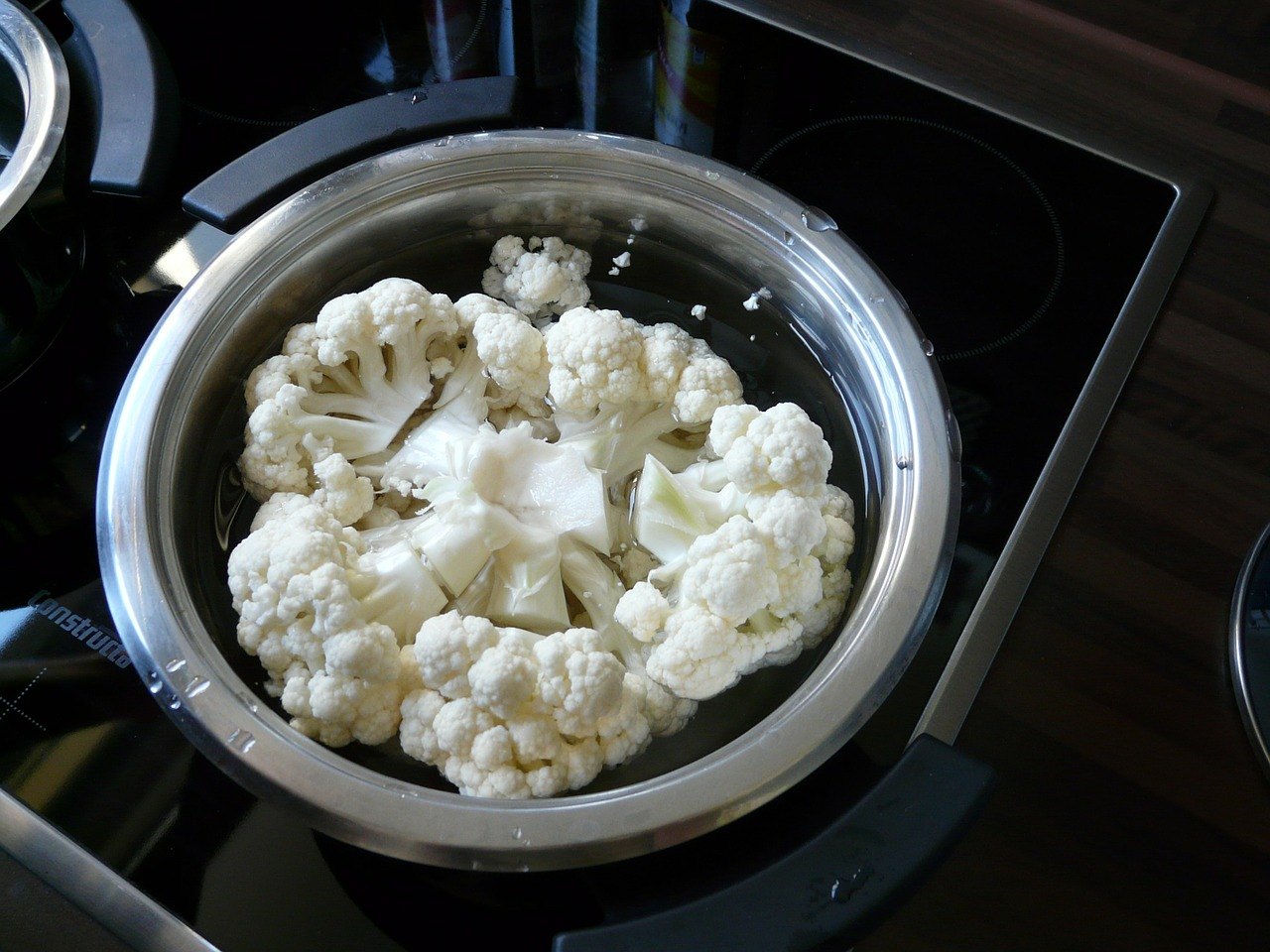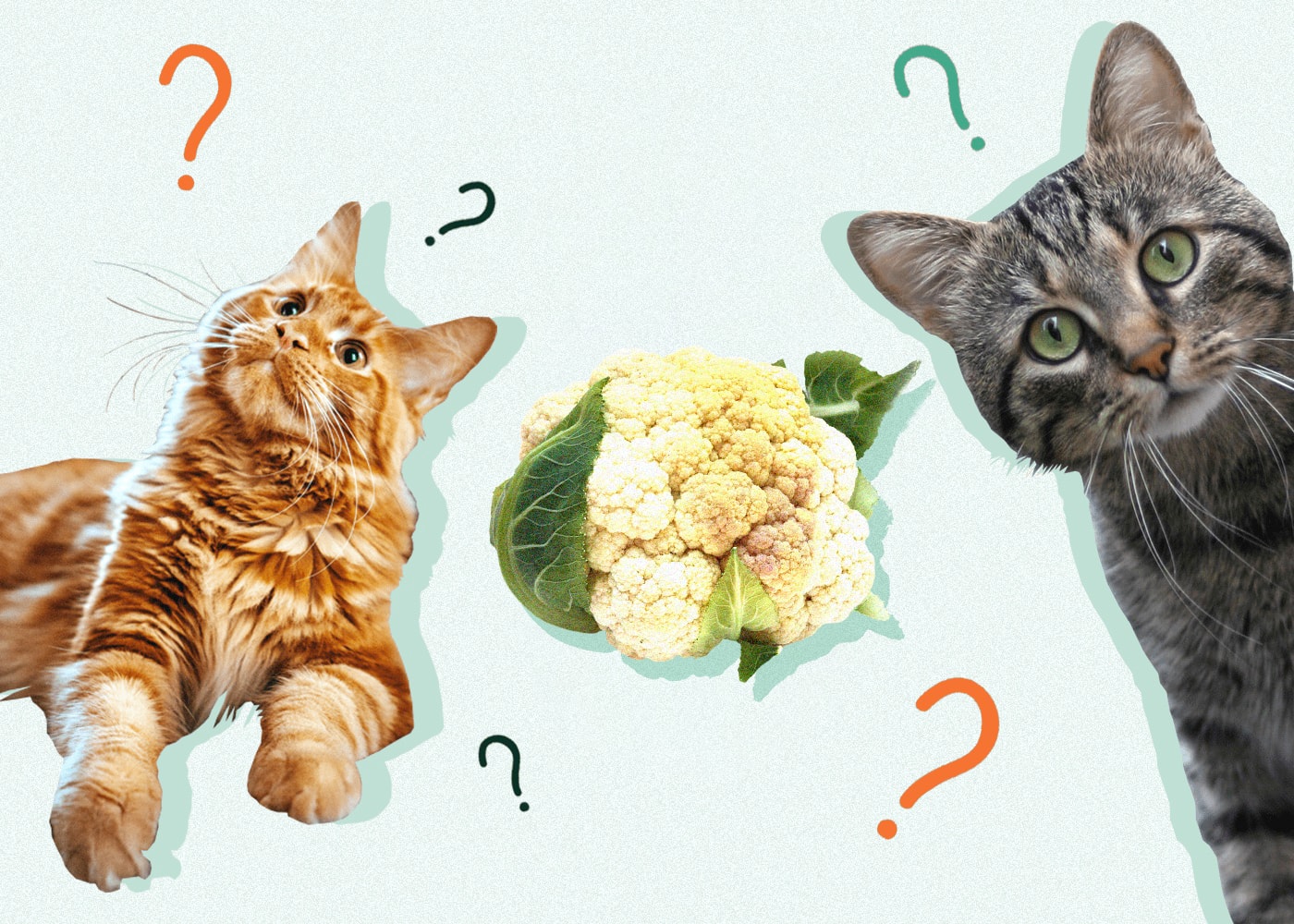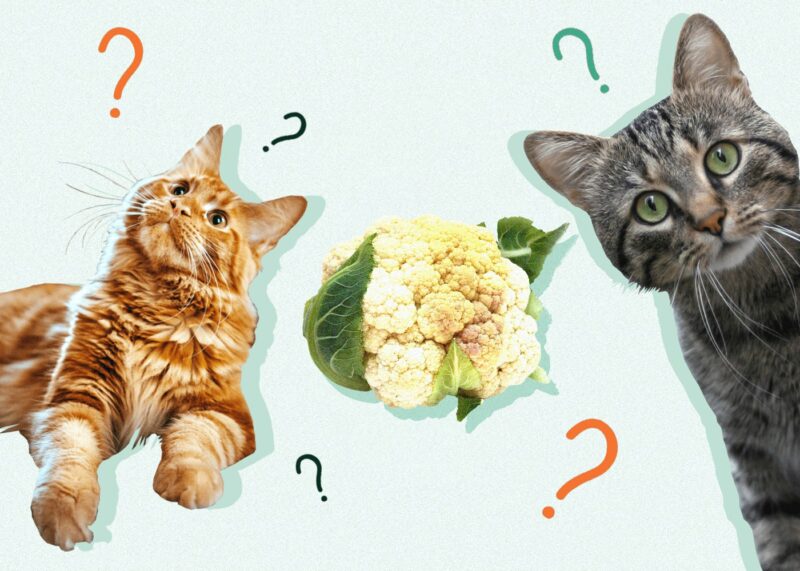Here’s a mystery: You set a piece of cauliflower down on your plate, turn around for two seconds, and then realize that the cauliflower has disappeared. Is your house haunted? Did the cauliflower transport into a different dimension?
None of these is likely, of course. Also, you already know where the cauliflower went—your cat stole it!
But now you have another question to deal with: Is it safe for your cat to eat cauliflower? Luckily, yes, it is!

Cauliflower Is Safe for Cats
The good news is that cauliflower is completely non-toxic for cats, so you don’t have to worry about it harming them. That’s not to say that you don’t have cause for concern, though. Eating too much cauliflower can wreak havoc on your cat’s digestive system, leading to impressive litter box disasters.
This is especially true with raw cauliflower, so if you consider offering it to your cat, be sure to cook it first (we recommend steaming it). Also, be sure to trim the stems and leaves off before serving, as they may be a choking hazard for some cats.
Most cats won’t gorge themselves on cauliflower, so overconsumption shouldn’t be much of an issue.

Is Cauliflower Good for Cats?
Cauliflower doesn’t have quite as impressive a résumé as some other fruits and vegetables do, but it’s not without its charms.
It has many antioxidants that can help reduce inflammation, but there is no research to see if this would benefit felines and in what amounts. Too much cauliflower can certainly cause a digestive upset. If you have an older cat, you may think cauliflower is a smart idea even if you haven’t noticed them getting creakier, but please speak to your vet first, as it may not be appropriate for your cat depending on their health status.
Cauliflower is also full of substances called “glucosinolates,” which are believed to have cancer-fighting properties. This compound may also have an effect on the thyroid gland if consumed excessively, which is unlikely to happen when it comes to cats tasting cauliflower. If your cat has a tumor, we wouldn’t recommend replacing their oncologist with a trip to the farmer’s market, but it’s nice to know that certain foods may have some potential to help, although these benefits have not been investigated in cats or proven. Most of the claimed health effects of cauliflower and other veggies get extrapolated from human medicine and nutrition. Cats should only have a small amount of cauliflower, which is unlikely to bring them any significant benefits, and these should not be counted on either way.
There’s a great deal of fiber in cauliflower, so it can come in handy if your pet has been having trouble in the bathroom. Like we said, though, just be careful not to let them eat too much—unless you want to see what happens when they really conquer their constipation problem.
Should I Get My Cat to Eat More Cauliflower?
As with most foods, your cat will likely eat it or they won’t. If not, there’s little you can do to convince them otherwise, and you shouldn’t.

You can always try mixing a little diced cauliflower in with their food, but you run the risk of them skipping meals if you do this. Still, it’s your best chance to trick a finicky eater into trying something new.
While cauliflower is good for felines, it’s not so good that you should pull your hair out trying to cram some down your cat’s throat. If they refuse to eat it, just let it go.
Conclusion
Cauliflower is not only safe for cats but it may have some potential health benefits. These are extrapolated from human medicine and have not been proven in cats, so if you notice your cat batting around a piece, don’t steal it from them, but do not expect your cat to reap any significant benefits.
It can cause digestive issues, though, so we recommend limiting their intake and only feeding them fully cooked cauliflower without the stems or leaves, which are firm and may become a choking hazard.
We wouldn’t go so far as to label cauliflower as a “superfood”, but it is safe for cats, so you may try to occasionally incorporate some into your pet’s diet if your vet gives you the green light.
Featured Image Credit by: Alice Castro from Pexels, RitaE from Pixabay











